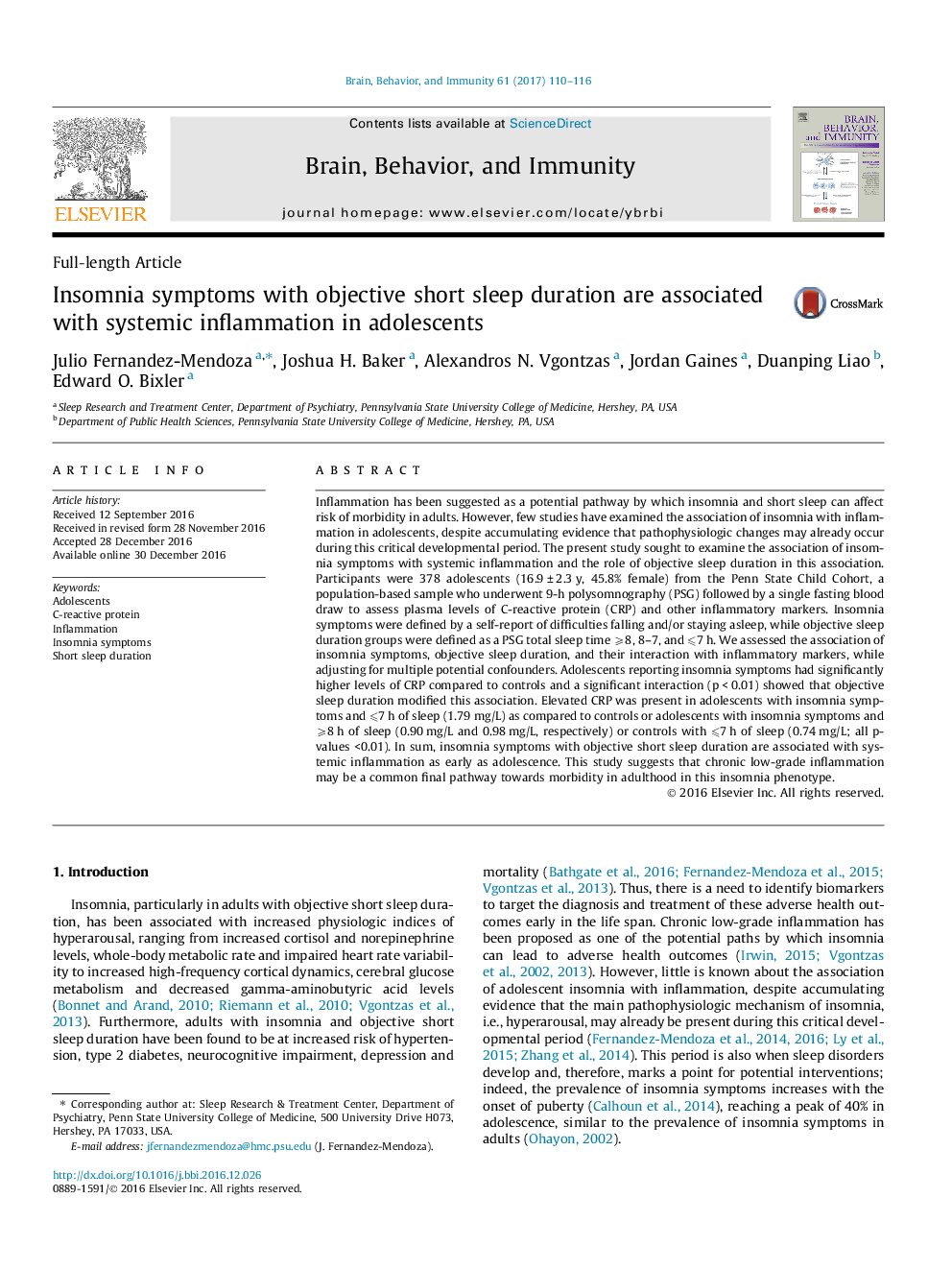| کد مقاله | کد نشریه | سال انتشار | مقاله انگلیسی | نسخه تمام متن |
|---|---|---|---|---|
| 5040693 | 1473906 | 2017 | 7 صفحه PDF | دانلود رایگان |
- Adolescent insomnia with short sleep duration is associated with elevated inflammation.
- This association is of clinically significant magnitude for a population-based sample.
- Insomnia with short sleep duration is a more biologically severe phenotype.
- Systemic inflammation may predict adverse health outcomes in this insomnia phenotype.
Inflammation has been suggested as a potential pathway by which insomnia and short sleep can affect risk of morbidity in adults. However, few studies have examined the association of insomnia with inflammation in adolescents, despite accumulating evidence that pathophysiologic changes may already occur during this critical developmental period. The present study sought to examine the association of insomnia symptoms with systemic inflammation and the role of objective sleep duration in this association. Participants were 378 adolescents (16.9 ± 2.3 y, 45.8% female) from the Penn State Child Cohort, a population-based sample who underwent 9-h polysomnography (PSG) followed by a single fasting blood draw to assess plasma levels of C-reactive protein (CRP) and other inflammatory markers. Insomnia symptoms were defined by a self-report of difficulties falling and/or staying asleep, while objective sleep duration groups were defined as a PSG total sleep time ⩾8, 8-7, and ⩽7 h. We assessed the association of insomnia symptoms, objective sleep duration, and their interaction with inflammatory markers, while adjusting for multiple potential confounders. Adolescents reporting insomnia symptoms had significantly higher levels of CRP compared to controls and a significant interaction (p < 0.01) showed that objective sleep duration modified this association. Elevated CRP was present in adolescents with insomnia symptoms and ⩽7 h of sleep (1.79 mg/L) as compared to controls or adolescents with insomnia symptoms and ⩾8 h of sleep (0.90 mg/L and 0.98 mg/L, respectively) or controls with ⩽7 h of sleep (0.74 mg/L; all p-values <0.01). In sum, insomnia symptoms with objective short sleep duration are associated with systemic inflammation as early as adolescence. This study suggests that chronic low-grade inflammation may be a common final pathway towards morbidity in adulthood in this insomnia phenotype.
Journal: Brain, Behavior, and Immunity - Volume 61, March 2017, Pages 110-116
